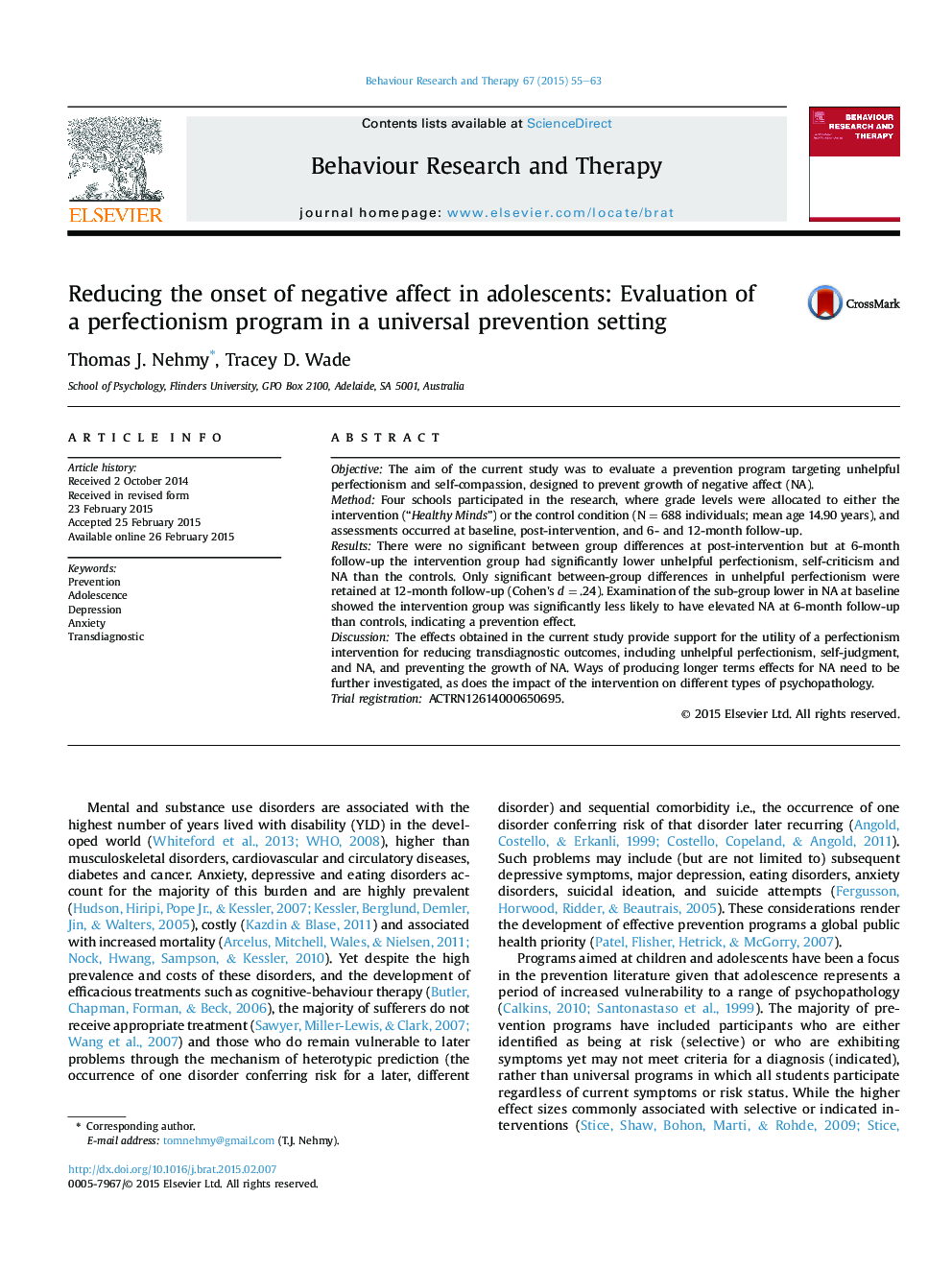| Article ID | Journal | Published Year | Pages | File Type |
|---|---|---|---|---|
| 901826 | Behaviour Research and Therapy | 2015 | 9 Pages |
•We evaluated the impact of a program targeting unhelpful perfectionism in adolescents.•Compared to control, perfectionism was significantly lower at 6- and 12-month follow-up.•Negative affect (NA) and self-criticism were also significantly lower at 6-month follow-up.•In adolescents with low baseline NA, growth of NA was significantly lower at 6-month follow-up.
ObjectiveThe aim of the current study was to evaluate a prevention program targeting unhelpful perfectionism and self-compassion, designed to prevent growth of negative affect (NA).MethodFour schools participated in the research, where grade levels were allocated to either the intervention (“Healthy Minds”) or the control condition (N = 688 individuals; mean age 14.90 years), and assessments occurred at baseline, post-intervention, and 6- and 12-month follow-up.ResultsThere were no significant between group differences at post-intervention but at 6-month follow-up the intervention group had significantly lower unhelpful perfectionism, self-criticism and NA than the controls. Only significant between-group differences in unhelpful perfectionism were retained at 12-month follow-up (Cohen's d = .24). Examination of the sub-group lower in NA at baseline showed the intervention group was significantly less likely to have elevated NA at 6-month follow-up than controls, indicating a prevention effect.DiscussionThe effects obtained in the current study provide support for the utility of a perfectionism intervention for reducing transdiagnostic outcomes, including unhelpful perfectionism, self-judgment, and NA, and preventing the growth of NA. Ways of producing longer terms effects for NA need to be further investigated, as does the impact of the intervention on different types of psychopathology.Trial registrationACTRN12614000650695.
